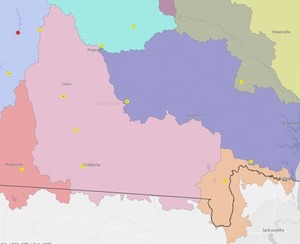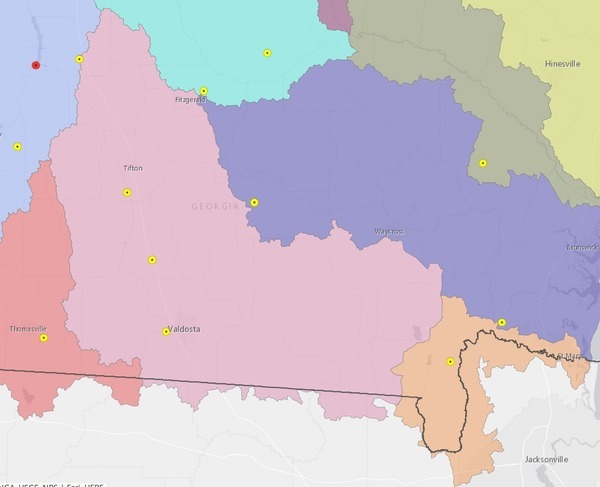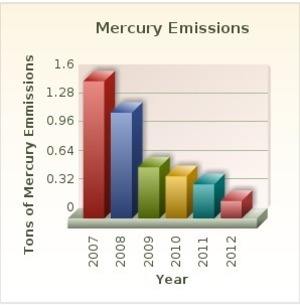Update 2017-02-23: Added contact information
Bills are before the Georgia legislature right now about disposing of
leaking pools of toxic coal ash,
and two members of the relevant committee are in south Georgia.
 Five landfills in south Georgia already received coal ash from TVA
several years ago, including the landfill in Lowndes County, which also
received coal ash from Florida.
Five landfills in south Georgia already received coal ash from TVA
several years ago, including the landfill in Lowndes County, which also
received coal ash from Florida.
In south Georgia,
- Rep. Sam Watson District 172, 404.656.0213, sam.watson@house.ga.gov, is Vice Chair of the Natural Resources & Environment Committee (HNRE).
- Rep. John Corbett District 174, 404-656-0213, john.corbett@house.ga.gov, is a member of HNRE.
As you can see by this interactive map, Sam Watson’s District 172 includes the Tifton-Omega/Eldorado Rd landfill in Tift County, which is also in the Georgia Senate District 13 of Greg Kirk. Sen. Kirk’s district also has Crisp Co-US 41S Site 2 (Ph 4&5) MSWL (Crisp County) and Plant Crisp (Crisp County Power Commission) – Ash Pond, Warwick, Crisp County.
In Rep. Corbett’s District 174 are two landfills: Camden Co-SR110 MSWL (Camden County), and Chesser Island Road Landfill, Inc. MSWL (Charlton County). The Chesser Island Road Landfill is one of only six in the state that had told GA-EPD two weeks ago that it does plan to accept coal ash.
The Camden County landfill is also in GA Senate District 3, William T. Ligon, Jr. (Brunswick). The Charlton County landfill is also in GA Senate District 7, Tyler Harper, who also in his district Atkinson Co – SR 50 MSWL (Atkinson County) and Fitzgerald, Kiochee Church Rd, Ph.2 (Ben Hill County).
Rep. Corbett also represents the southeast part of Lowndes County, in which just outside Corbett’s district in Amy Carter’s District 175 is Advanced Disposal Services’ Evergreen Landfill, Inc., the one that has accepted coal ash before from TVA and JEA. That Lowndes County landfill is also in GA Senate District 8, Ellis Black. Sen. Black’s district also includes the Cook County Taylor Road landfill, which is also in House District 170, Penny Houston.
Only three landfills (and no coal ash ponds) are actually in WWALS watersheds (the Suwannee River Basin) in Georgia. They are: the Tifton-Omega/Eldorado Rd landfill in Tift County, Cook County Taylor Road landfill, and Advanced Disposal Services’ Evergreen Landfill, Inc. in Lowndes County. However, legislative districting leaves the same state legislators responsible for those landfills also responsible for others.
Here is contact information for all Georgia state legislators in the Suwannee River Basin:
The Bills
Three bills have been introduced this session to protect our communities from coal waste pollution:- HB 387 requires utilities to get the proper permits before discharging coal ash wastewater into Georgia’s waterways;
- HB 388 ensures that landfills receiving coal ash have a good plan and take adequate precautions to prevent coal ash contamination;
- SB 165 ensures that anyone who produces coal ash remains liable for that ash forever and that Georgians can take action against out of state producers if their water and communities are polluted
In order for these bills to pass this year, they must make it out of their respective chambers (House for HB 387/HB 388 and Senate for SB 165) by Crossover Day, March 3.
Disposing of Coal Ash
For why coal ash is a problem, see this fact sheet by Georgia Water Coalition (GWC).
It is the position of GWC, of which WWALS is a member, that these bills are what is needed. WWALS is a partner of GWC and agrees that these bills are better than the current situation. WWALS has the further position that we’d prefer no more coal ash in any landfills in our watersheds, and that those companies that produced this toxic waste be responsible for disposing of it safely on their own land at their own expense.
-jsq, John S. Quarterman, Suwannee RIVERKEEPER®
You can join this fun and work by becoming a WWALS member today!



